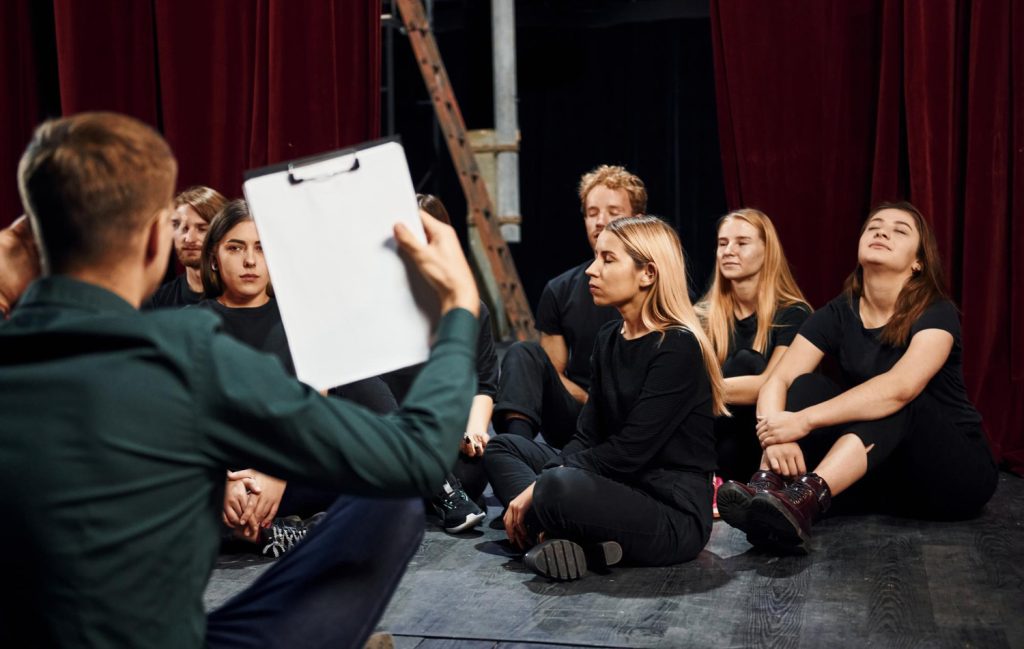
Time Management Skills For Intensive Acting Course Success
Mastering time management skills for intensive acting course success is essential for anyone enrolling in a demanding acting program. An intensive acting course demands a level of commitment beyond the standard class schedule. Whether you’re new to professional training or already familiar with performance work, the pace of a program like a 12-Week Acting Intensive can be overwhelming without a solid plan. Long rehearsal hours, back-to-back classes, and layered assignments don’t leave much room for guessing how to spend your time each day. That’s why knowing how to manage your schedule is just as important as learning your lines.
Why Time Management Skills Are Crucial in Acting Courses
Time management in acting isn’t about squeezing every minute of the day into something productive. It’s about knowing what needs your time most, and figuring out how to give your energy to those priorities without running on empty. One missed rehearsal or forgotten assignment can throw off your week and set you back when the course moves fast. Poor time use can lead to added stress, burnout, or missing out on opportunities you genuinely care about. But with the right approach, it’s absolutely possible to find a steady rhythm and stick with it.
Prioritize Your Tasks and Set Goals
Everything feels important when you’re juggling assignments, rehearsals, and classes. That’s why it’s helpful to figure out what truly matters each day. Start by identifying your deadlines—what’s due soon and what needs prep work ahead of time. Once you’ve got that down, think about your long-term goals. Are you building a specific skill? Do you have an audition around the corner? Understanding your bigger-picture goals helps you focus your energy where it counts most.
Use a system that works best for you. For some, a daily planner is reliable. Others like digital calendars or apps that send reminders. Keep things simple. The easier it is to use your system, the more likely you are to stay on track.
Here are a few easy ways to stay goal-focused:
1. Follow the 1-3-5 rule: 1 big task, 3 medium tasks, 5 small ones each day.
2. Keep your goals visible and cross things off as you go.
3. Break bigger projects into bite-sized parts and spread them out.
4. Make sure your goals line up with your actual time—not your ideal time.
Setting goals builds momentum, but only if they’re realistic and clear. If you stay mindful of what each day needs and what each week demands, it’s easier to avoid overload and stay productive.
Create a Balanced Schedule
Managing your time isn’t just about working nonstop. Making time for meals, rest, social connections, and personal recharge is just as important. If your entire day is filled with tasks, your energy won’t last. A balanced schedule supports both effort and recovery so that you can stay sharp the whole way through.
Think in blocks instead of a long, rigid to-do list. Start with the non-negotiables like classes and rehearsals, then fill in the spaces around them with rest, creative work, and essential self-care. Physical activity, hobby time, and even short breaks help you reset and avoid burnout.
Here’s one example of how a day in the 12 Week Acting Intensive might look:
– 9:30 AM – 12:30 PM: Acting class
– 12:30 PM – 1:15 PM: Lunch break
– 1:30 PM – 3:00 PM: Script study or rehearsal work
– 3:00 PM – 4:30 PM: Physical training or voice work
– 5:00 PM – 6:30 PM: Journaling, self-taping, or scene partner work
– 7:00 PM onward: Dinner, relaxation, and wind-down
This structure won’t be perfect every single day. But choosing a rhythm that fits your life can help all parts of your day run smoother. Over time, even your free moments will feel more meaningful.
Effective Time Management Techniques For Acting Success
Once you’ve got a working plan, it’s time to fine-tune your method for staying productive. The right tools can stop distractions and help you focus, especially during the busiest weeks of the program.
One helpful strategy is the Pomodoro Technique. Work for 25 minutes, then take a 5-minute break. It works well when memorizing lines or practicing voice technique. Another favorite is time blocking. Assign each task a set slot during your day and stick to it. This works great for writing, practicing monologues, or reviewing notes.
Task batching is another trick. Instead of scattering similar tasks across days, group them in one session. For example, film all your self-tapes on the same afternoon. That way your setup only needs to happen once and you save time in the process.
To stay on track with any technique, you’ll need to stay motivated. Here are a few ways to support consistency:
1. Put your phone on “Do Not Disturb” for focus time.
2. Use alarms or timers to start and stop tasks.
3. Check your goal list each week to see what’s done.
4. Celebrate small wins with a break, your favorite snack, or a short walk.
Figuring out what helps you stay focused may take a little trial and error. Pick a plan, adjust it as needed, and keep moving toward better habits.
Stay Organized and Avoid Procrastination
Staying organized is key to mastering time management skills for intensive acting course success. A cluttered space or scattered list of tasks can quickly drain your energy and delay progress.
Start with one simple move: pick one place to store everything that matters. Whether it’s a physical binder, a Google Drive folder, or a favorite planning app, keep all scripts, assignments, rehearsal notes, and deadlines in that space. That way, you won’t waste time searching for things when you need them most.
Procrastination happens when tasks feel too large or overwhelming. Breaking things into smaller, clearly defined steps helps a lot. For example, “work on scene” can become “highlight blocking cues, run lines for act two, and rehearse with partner.”
Stay on track by building small habits:
1. Set out your workspace the night before.
2. Use sticky notes or a whiteboard for the week’s biggest goals.
3. Spread large projects out over a few days instead of cramming.
4. Keep your daily to-do list short and focused.
When tasks feel manageable, you’re more likely to follow through on them. Over time, strong organization habits will make your training smoother and less stressful.
Maximizing Productivity During Downtime
You won’t be working every minute of the day, and that’s a good thing. Short breaks between sessions and evenings you’re not in rehearsal give you a chance to use time without pressure.
The trick is finding low-energy ways to stay engaged with your craft. If you have fifteen open minutes, read a few pages of your script or listen to your recorded lines while stretching. These small efforts build consistency and confidence.
Other productive downtime habits include:
– Journaling from your character’s point of view
– Doing brief breathing or vocal warm-ups
– Listening to acting or filmmaking podcasts
– Reviewing feedback or rehearsal notes
If you’re mentally tired, try movement-based review. One student in Los Angeles took short walks while running lines out loud. It gave her a break without losing focus.
You don’t have to be busy every second. But making good use of even a few spare minutes can give you more confidence—and better results—over time.
Building a Better Flow for Your 12 Week Acting Intensive
Building an effective time management skills for intensive acting course success means learning how to balance your energy, focus, and downtime in ways that help—not drain—you. By breaking tasks into steps, using the right tools, and staying honest about your limits, you’ll move through the program with more control and confidence.
Time management doesn’t eliminate the workload, but it does make your effort count. These small routines can help you feel less overwhelmed, more present, and better prepared. Plan ahead, stay flexible, and keep checking in with your goals. Over time, your habits will carry you further than you think—and they’ll stay with you long after training ends.
Expand your acting potential by taking part in the 12 Week Acting Intensive, where Los Angeles Acting Conservatory helps you sharpen your time management skills while developing strong performance habits. It’s a focused, collaborative environment that prepares you for the fast pace of a professional acting career.

